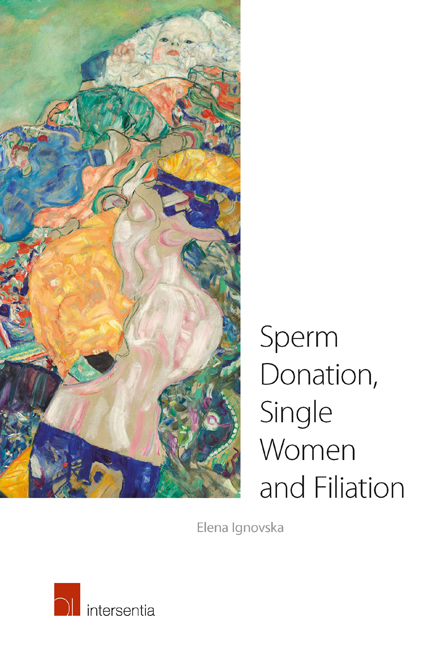
- Publisher:
- Intersentia
- Online publication date:
- December 2017
- Print publication year:
- 2015
- Online ISBN:
- 9781780685441
- Subjects:
- Law, Family Law

Although recent family law debates have been predominantly paedo-centric, the founding of "bio-medically assisted families" still focuses on the individual parents' rights to reproduce. By introducing donations, the donor's genetic contribution becomes instrumental and the legal attribution of parenthood negotiated through expressed intentions. The absence of a genetic, social and legal father can only occur in single women's conceptions by choice, hence calling into question the role of the societal father.This neglects the future child's voice in private and family life issues on at least two levels: informational (lacking information about origins, often related to personal identity) and legal and functional (care provided by both parents). It furthermore emphasises the inconsistency in the treatment of "naturally" and "artificially" conceived children since the latter have restricted access to parental judicial proceedings.The conflicts between individuals in the family go beyond national family laws and become a matter of reconciling progenitors' and children's human rights. Yet the discrepancies between different civil law jurisdictions are remarkable. In addition, the sensitivity of the filiation of children conceived by sperm donation to single women requires more than legal solutions - it requires an interdisciplinary approach encompassing ethics, psychology, anthropology and sociology. Moreover, by arguing and suggesting solutions the issue also becomes political. Hence, this book provokes the curious minds of lawyers, ethicists, physicians, bio-technologists and those assisting and wishing to found families. It clarifies concepts, studies the rationale behind the legal complexity in ten national European jurisdictions, and confronts the rights and responsibilities of the stakeholders, providing a balanced independent conclusion and suggestions towards international harmonisation.
 Loading metrics...
Loading metrics...
* Views captured on Cambridge Core between #date#. This data will be updated every 24 hours.
Usage data cannot currently be displayed.